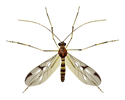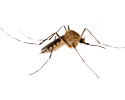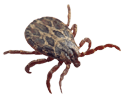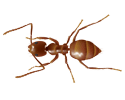Zika Virus Update
“The status of Zika has changed from a mild medical curiosity to a disease with severe public health implications,” said Margaret Chan, World Health Organization Director-General, in the Washington Post in March.
Up until February of this year, researchers believed the virus to be no more than a mild flu-causing agent. With increasing evidence linking Zika to congenital birth defects in pregnant women, however, the Centers for Disease Control (CDC) is demanding extreme caution for those visiting afflicted countries. Brazil continues to be the focus with the most confirmed instances of Zika-induced microcephaly at 863. However, Zika is actively disrupting countries in the Southern Hemisphere, spanning the South Pacific to Mexico.
Zika’s alarming spread across nations has heightened concern in the United States and its territories, something we did not address in our previous coverage. Today, we circle back on its current foothold in the U.S., specifically the Houston area, and re-evaluate prevention methods.
Houston
At the time of our first Zika report, not much was known about the virus’ ability to spread through the U.S. Since then, the CDC now reports over 500 affected individuals in the United States, which includes 48 pregnant women. The highest concentration remains in the Gulf Coast area, in which Florida has the greatest number of infected persons at 103. In the Houston area alone, including surrounding Harris County, 12 individuals and one pregnant woman have been diagnosed as containing some form of the virus. All instances were acquired through travel, rather than locally acquiring the virus.
As we transition into the summer months, the future looks increasingly bleak. Aedes aegypti, the mosquito species responsible for transmitting Zika as well as Dengue and Yellow Fever, thrives in the Gulf Coast states’ environment. With its damp and humid conditions being most ideal for Aedes aegypti breeding, it’s quite possible we will see a large uptick in Zika cases through August.
Flooding
The recent torrential downpour and subsequent flooding probably aided in removing a significant number of mosquitoes throughout Houston, as they can’t breed in floodwater. However, the aftermath of the extreme weather conditions is what’s concerning to entomologists and pediatricians alike. As we mentioned in our last article, mosquitoes utilize stagnant water conditions for breeding grounds and larvae hosting. They’ve become highly evolved creatures since living among humans and now are able to reproduce in stark environments: puddles forming on your grill cover, backyard puddles, birdfeeders, etc. Houston’s latest floods have surely created new homes for mosquitoes across the city and possibly in your backyard.
With little known about the disease and a vaccine yet to be created, prevention is the only form of safety. We outlined a few tips in February’s Zika blog but did not mention how to address the standing water in your backyard. Puddles in your lawn could certainly harbor mosquitoes, so consider installing a “French drain” to remove it. Review any number of online tutorials that discuss its usage, but this will certainly improve any drainage problems your home’s lawn may have.
Transmission
As previously noted, one becomes infected with the Zika virus through the bite of an Aedes mosquito also containing the virus. From the initial bite, humans can spread it to others in three different ways:
– Pregnancy: The most extreme incident, pregnant mothers bitten by the infected mosquito transmits Zika through the placenta and directly to the child. Health professionals have discovered the virus’ relation to microcephaly, a shrinking of an infant’s skull that leads to severe cognitive impairment.
– Sexual contact: A handful of reports have demonstrated the male’s ability to transfer the virus to his sexual partner. In the known cases where this transmission occurs, it is only the male possessing the ability to transfer Zika. The CDC recommends wearing protection should you be concerned.
– Blood transfusion: While this has yet to occur on U.S. soil, more than a few instances of the virus’ spread through blood transfusion have occurred elsewhere. Reports are currently being investigated in Brazil while French Polynesia has shown that 2.8% of blood donors tested positive for Zika.
If you have any suspicion of having the virus, contact your primary care physician to schedule a blood screening. Be sure to note any traveling beyond U.S. borders and cross-reference your symptoms with the CDC’s guide here: https://www.cdc.gov/zika/signs-symptoms/
If you’re concerned about a mosquito problem on your property, contact Holder’s Pest Solutions immediately.
Zika Virus Update Serving
Houston
Beaumont | Conroe | Spring | Pasadena | The Woodlands | Richmond | Galveston
Baytown | Bryan | Cleveland | College Station | Cypress | Pearland | Sugar Land
Home » Zika Virus Update






